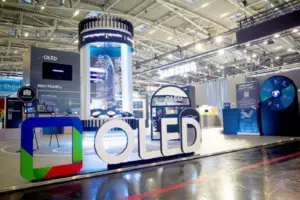Samsung filed an injunction in the courts in Seoul last March claiming that an ex-employee with in-depth knowledge of its OLED manufacturing processes had indirectly gained employment with a competitor in China. The Korean court has ruled in favor of Samsung and put iron-clad restrictions on the former employee’s ability to seek certain jobs.
The employee, who has remained nameless, had been working as a project leader on core processes in OLED production for Samsung since 2008. Less than two years ago, the employee had left the company and received 88 million won ($65,000) from Samsung in return for assurances that he would not share any of his knowledge with domestic or foreign competitors.
Last year, about seven months after leaving Samsung, the former employee had found a job with a Chinese company that produces small medical laser treatment devices. Samsung filed the injunction claiming that the employee was actually going to be working indirectly at a competitor. The court founded the former employees protests about the new company not competing in displays as being unconvincing, even imposing a 5 million won ($3,700) a day fine for any violations of its order.
While the court acknowledged that it was restricting the former employees freedom to choose a job, it was in the public’s interest that it makes this judgement because of the importance of Samsung’s technology to the national interest.

